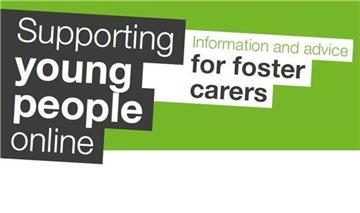The internet is an amazing resource which enables children and young people to connect, communicate and be creative in a number of different ways, on a range of devices.
However, there are risks online, which will vary depending on a child’s age, online activities and vulnerabilities.
It can help to ask your social worker if the young person has a history of any online harm or risk (eg bullying, self-harm, grooming or sexual abuse). It is worth being aware that low self-esteem and other emotional, social and behavioural issues can make children more vulnerable to online risks.
We have grouped potential online risks into these 4 categories:
Conduct: Children may be at risk because of their own behaviour, for example, by sharing too much information
Children need to be aware of the impact that their online activity can have on both themselves and other people, and the digital footprint that they create on the internet. Young people may share too much and take risks such as chatting to strangers or sharing sexual images. It’s easy to feel anonymous online and it’s important that children are aware of who is able to view, and potentially share, the information that they may have posted. When using the internet, it’s important to keep personal information safe and not share it with strangers. Discuss the importance of reporting inappropriate conversations, messages, images and behaviours and how this can be done.
Content: Age-inappropriate or unreliable content can be available to children
Online content can be viewed via a range of devices, including laptops, smartphones, tablets and games consoles. Some online content is not suitable for children and may be hurtful or harmful. For example, content that is pornographic, violent, extremist or promotes suicide or anorexia. It’s important for children to consider the reliability of online material and be aware that information might not be true or may be written with a bias. Children may need your help as they begin to assess content in this way. There can be legal consequences for using or downloading copyrighted content, without seeking the author’s permission.
Contact: Children can be contacted by bullies or people who groom or seek to abuse them
It is important for children to realise that new friends made online may not be who they say they are and that once a friend is added to an online account, you may be sharing your personal information with them. Regularly reviewing friends lists and removing unwanted contacts is a useful step. Privacy settings online may also allow you to customise the information that each friend is able to access. If you have concerns that your child is, or has been, the subject of inappropriate sexual contact or approached by another person, it’s vital that you report it to the police via the Child Exploitation and Online Protection Centre (www.ceop.police.uk). If your child is the victim of cyberbullying, this can also be reported online and offline. Reinforce the importance of telling a trusted adult straight away if someone is bullying them or making them feel uncomfortable, or if one of their friends is being bullied online.
Commercialism: Young people can be unaware of hidden costs and advertising
Young people’s privacy and enjoyment online can sometimes be affected by advertising and marketing schemes. Young people can also be unaware of hidden costs in games and apps. Encourage your children to keep their personal information private, learn how to block both pop ups and spam emails, turn off in-app purchasing on devices where possible, and use a family email address when filling in online forms.












